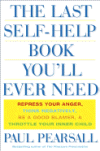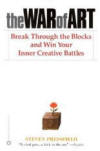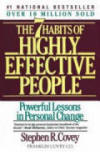
Leader of the Month for August 2005:
Dr. Paul Stoltz
.jpg)

Leader of the Month for August 2005:
Dr. Paul Stoltz
.jpg)
Paul Stoltz's story:
Dr. Paul Stoltz is an accomplished leader. He is the originator of Adversity Quotient® (AQ®), founded PEAK Learning® in 1987, oversees research in 17 countries as Director of the Global Resilience Project, and is an author who has written Adversity Quotient: Turning Obstacles into Opportunities, Adversity Quotient @ Work, and The Invincible Investor.
When asked to share his story, this is what Paul Stoltz shared:
I have always strived to be weird in a kind of good
way, in a way that hopefully contributes positively to the planet and to
people’s lives. And for me, my story starts around age 12. There were two real
pivot points. The first is this: I was stuck with my dad during a blizzard in
O'Hare Airport, in Chicago back when O'Hare looked like a prisoner-of-war
bunker. And we were sitting there and I was the typical squirrelly 12-year old,
squirming in my seat. We were watching all these business drones parading up and
down with these dour looks on their faces. My dad was reading the Wall Street
Journal patiently, and our flight was delayed. And I said to my dad, “Why are
people so dead? These people all look dead.” He put down his paper and looked around and said, "Yeah, they
kind of do." Then, he said, "I think this is a good lesson: ‘life can be hard.’"
As he picked his paper back up, I said, "Am I going to be like that?" His
response was, "There are some people that kind of escape." And I remember
thinking, “I want to be one of those people. What is that all about?”
And then, if you fast forward about 8 years, I was in the advanced classes of my
undergraduate education, and I had this really cool professor, Eric Soares (who
is still a professor, now at Cal State Hayward), and he was my advisor and my
mentor. I came up to him in class and said to him, “Who wins? Who wins
anything? Who are the people who really win in life? Who wins at work? Who
wins?” He responded by saying, "That is your first project: go find out." I went
over to the library--which at that time was a pretty novel experience for me--to
do some research. In my research, the more I found the more intrigued I became
because it was all this motivational pap and a lot of feel-good pop psychology
stuff that had no real substance. And I knew it was about more than looking
yourself in the mirror and telling yourself, “I like myself; I like myself.
Every time I hear it I get more powerful." And as I started to get inside this
thing I got really intrigued. There did not seem to be any real substantive
research that would answer this question for us.
And so then Professor Soares took me to an entrepreneurs' conference with some big-name presenters, and he said, “See if you can learn anything.” So I went around and started asking a lot of nosey questions, like, “Who in this room do you most respect and why?” and I started picking up this theme. And the theme was this: it seemed like the entrepreneurs who had achieved the most amazing things were people who had faced the most incredible adversity. They all had these stories of having faced and overcome adversity.
Then when I graduated, my first job was working for a venture capitalist, a very prominent guy, who was writing a book on the emotional DNA of entrepreneurs. Again the common theme was that the ones who rose to the top had faced and overcome incredible adversity. And I felt like "There is something going on here." And I have spent the past 26 years of my life deeply obsessed with that question. And I started going off into a lot of the brain research, the neurochemistry and biochemistry, the evolutionary psyche, and the quantum physics. I was pulling from a really wide array of the nine primary sciences, and the approximately 1500 studies that sort of contribute to this. I realized there is seemingly a moment of truth: that moment of truth is what triggers inside of human beings when they face adversity. For me my story really has been about trying to unravel the mystery of what it is inside of the rare percentage of human beings who really do seem to (a) stay fully alive until their final breath and (b) thrive in the most demanding of circumstances. Unlike the majority of the people who are gradually consumed by life’s adversity, they actually consume it and perform this alchemy where they convert it into fuel. That has been my life’s work and what has led us to the work we do today.
About Dr. Paul Stoltz
Founder and CEO of PEAK Learning® and Author
Executive Excellence identified Paul Stoltz as one of the 100 most influential thinkers of our time. Stephen Covey is writing the foreword for Dr. Stoltz’s latest book, The Adversity Advantage, due for release this fall and co-authored by Erik Weihenmayer. Dr. Stoltz received his bachelor’s degree in Organizational Communication and Economics from the University of California. He earned his master’s and Ph.D. in Organizational Communication, Development, and Leadership from the University of Minnesota.
Family: married to Dr. Ronda Beaman; sons Chase and Sean; daughter-in-law Katie; soon to be a grandfather; USA Today called his family "America's Most Creative Family"
Home: San Luis Obispo, California, USA
Current personal passion: I have a huge passion for what we do, for my family, and for learning. I have a huge passion for the outdoors and all the kinds of activities we do out there. A fun passion I have is for paddle surfing. It is just like surfing except you are on a surfboard that you can sit on. You sit on the surfboard with a paddle and surf the big waves in the Pacific. I go out in the morning with a friend, and it is just an incredible workout and rush! We have the time of our lives just facing the thrill of being alive! I spend as much time upside down as I do right side up.
Dream: My aspiration is to help people completely rethink their relationship with adversity, and, as a result, dramatically reduce human suffering because the vast majority of suffering--like worry--is completely unnecessary.
Place in the world you most like to visit: I love New Zealand: it is probably one of the last great places on Earth. I love Alaska for its unspoiled beauty, Telluride, Colorado, because of its unmatched spectacular scenery, and the Oregon coast for its wild beauty and the force of the storms there.
Michael Crosby, Operating Officer for Irving Oil, shares the following about the leadership of Dr. Paul Stoltz: “When you talk to Dr. Stoltz and work with him, he is focused on a sense of purpose. Paul is amazingly committed to his overall purpose in his own life, and his leadership is founded on this very strong sense of purpose. I do not mean simply purpose in business, but throughout all the aspects of one’s life he focuses on overall purpose at the highest level of thinking. When making decisions and charting a course of action, Dr. Stoltz ensures that the individual or organization’s purpose is the driving force.”
Dr. Paul Stoltz and Leadership
Your metaphor for leadership: The analogy I have always used, beginning even before I started PEAK Learning in 1987, would be the analogy of the mountain because I believe, in the simplest of terms in life, there are quitters, a lot of campers, and climbers. When I say climbers I am not referring to the people who are climbing over everyone and everything to get the next promotion but to people who are continually compelled to move up and forward in their lives. These are the people who strive to be better people and learn and grow and improve until their final breath. I use that analogy of the mountain in just about everything I do. When you talk about the big difference between managers and leaders, a thought about campground rangers and lead climbers comes to mind. A lot of the people who call themselves leaders are really campground rangers. They kind of walk around the campground and tell stories and make sure everyone is in the right place, following procedures and rules, that lights are out at the right time and all that stuff. Lead climbers, on the other hand, are the leaders who are really carving out new routes and trying to really forge the team to take on increased possibilities and new territory and expand their capacities and capability to really do great things. Lead climbers are obsessed with things like impact and contribution and legacy and significance as opposed to numbers and incremental improvements. They really want to make a mark and help people do that.
Favorite books: There are three books. Consilience: Unity of Knowledge by Edward O. Wilson. He is definitely one of the top 100 thinkers of our time. This book is about pulling the major findings from sciences that never talk to one another into a grand truth. That is something that we have strived for our work to be, so that has been a very important book to me. I just love Paul Pearsall’s The Last Self Help Book You’ll Ever Need because it flies in the face of everything that has been said about self help. Another really great book is The War of Art: Break Through the Blocks and Win Your Inner Creative Battles by Steven Pressfield.



Books recommended for aspiring leaders: The War of Art (mentioned above). My criteria in looking for books is this: if I did what this book says, ‘Would I be a better leader? How much of a better leader would I be, and why?’ It is that simple. If I really listed and followed these principles that the book identifies, where would it take me? That is why I remain a huge fan of the Seven Habits of Highly Effective People and am privileged that Dr. Stephen Covey is doing an extended foreword for my next book. We are incredibly honored. He is such a fine guy, and I deeply respect him, too. When you talk about great people he is definitely on the list because he really strives to live his message. He is one of the few I see out there that has no disconnect between what he professes and who he is.

Advice for aspiring leaders: I am not the guy to necessarily give people life’s advice, but I guess it would be to ground your life in principles. Do something that inspires you. Make it a lifelong goal to make your life less and less about you and more and more about everyone and everything else around you; in other words, give a slow death to ego. Recognize that without adversity you can never unleash your greatness: embrace and harness the adversity you face and take it on or bring it on, so you can use it as fuel for your climb.
Most admired leaders: Stephen Covey because of his integrity, selflessness, and what he does. Eric Weihenmayer, my coauthor. I greatly respect him because of the way he has used his blindness--his adversity--to not just achieve great personal accomplishments like climbing to the top of Mt. Everest, but to turn that into a cause to help shatter people’s perceptions of what is possible. I admire people who use what they have for something much bigger than themselves. Gerald Haman. He is such an incredibly creative guy and an original thinker.
Traits most important in a leader: Resilience; humility; integrity; vulnerability; energy; relentlessness
Which of these traits is the most difficult or troubling for people? Integrity/values/principles = they are meaningless until tested under pressure. That to me is what is telling about a leader. You can be the nicest person in the world, but who are you under pressure? It is one thing to be a leader when everything is fine; we are much more interested in who they are and in what they say and do when everything goes wrong. That, to me, is what I am really interested in: how do our leaders respond in the face of adversity? We do not always get insight into it, and when we do, we are not always pleased with what we see.
What and where are the best training programs for leaders? I am a fan of Covey’s Principle-Centered Leadership. Some of the work that comes out of the Center for Creative Leadership can be pretty rich. I like Kevin Hall. The Power of Words is a book he is writing for leaders. The work is a very enlightening thing, and it has really awakened leaders to the way in which they shape reality with words.
Paul's assessment of the state of AQ® (Adversity Quotient®) and its progression: We now have the most widely adapted methodology in the world for measuring and strengthening human resilience. This notion we have created called AQ, or Adversity Quotient, is used by many of the world's top governments and certainly the world’s industry-leading companies which is just incredible. We have measured the AQ’s of 500,000 people worldwide. We use it on both the screening of applicants and the development of people. When you think of the implications of AQ for healthcare, education, and enterprise worldwide, there is so much work still to do.
How does AQ vary amongst demographic groups? It is sort of like jobs in a way: people select their occupation based on their AQ without even knowing their AQ. It is based on their perceived capacity for adversity. It is incredible: entrepreneurs consistently have the highest AQs. Commissioned salespeople have extremely high AQs. We have yet to work with a government agency anywhere in the world that initially scored as high as average on AQ. Of course that goes up significantly after the AQ training. It really is astonishing that even after all these years every single time-we see (the correlation between people's occupations and their AQ) come out again and again and again. Certain job functions typically score higher than others. We have evolved (AQ and our understanding of its implications) to the point where we really can not only measure it but can do things to measurably and permanently improve this in people and raise their AQ’s. This has such a profound impact on their lives, and of course the actual performance metrics of their businesses.
What other projects are you excited about? It is a privilege to be involved with an effort that has been underway for a long time. A book that has really been influential is Viktor Frankl’s Man’s Search for Meaning. Frankl said, “With liberty comes responsibility,” so there should be a Statue of Responsibility on the West Coast since there is a Statue of Liberty on the East Coast. Viktor's wife Eleonor is still alive, and there has been a group that has come together and has actually undertaken this project. The group has gone so far as to create a giant prototype and is working on creating a giant 300-foot statue called the Statue of Responsibility (in what will most likely be the heart of San Diego). This could be a significant contribution to the character of our country, and it is a big one for leadership. I am happy to be involved in this project, and I am really excited about the educational piece because I think there is going to be some very powerful leadership development that is going to take place in the learning center on the top floor. To find out more about this project, click here.
Speaking of responsibility, can you define your construct? This is responsibility: Response Ability. It is defined as the ability to respond optimally to whatever happens at the moment that it strikes.
Where to Go for More About Dr. Paul Stoltz
Visit the Peak Learning website: http://www.peaklearning.com.
Look for Dr. Stoltz's newest book, The Adversity Advantage, to be released next fall, or read his past releases.